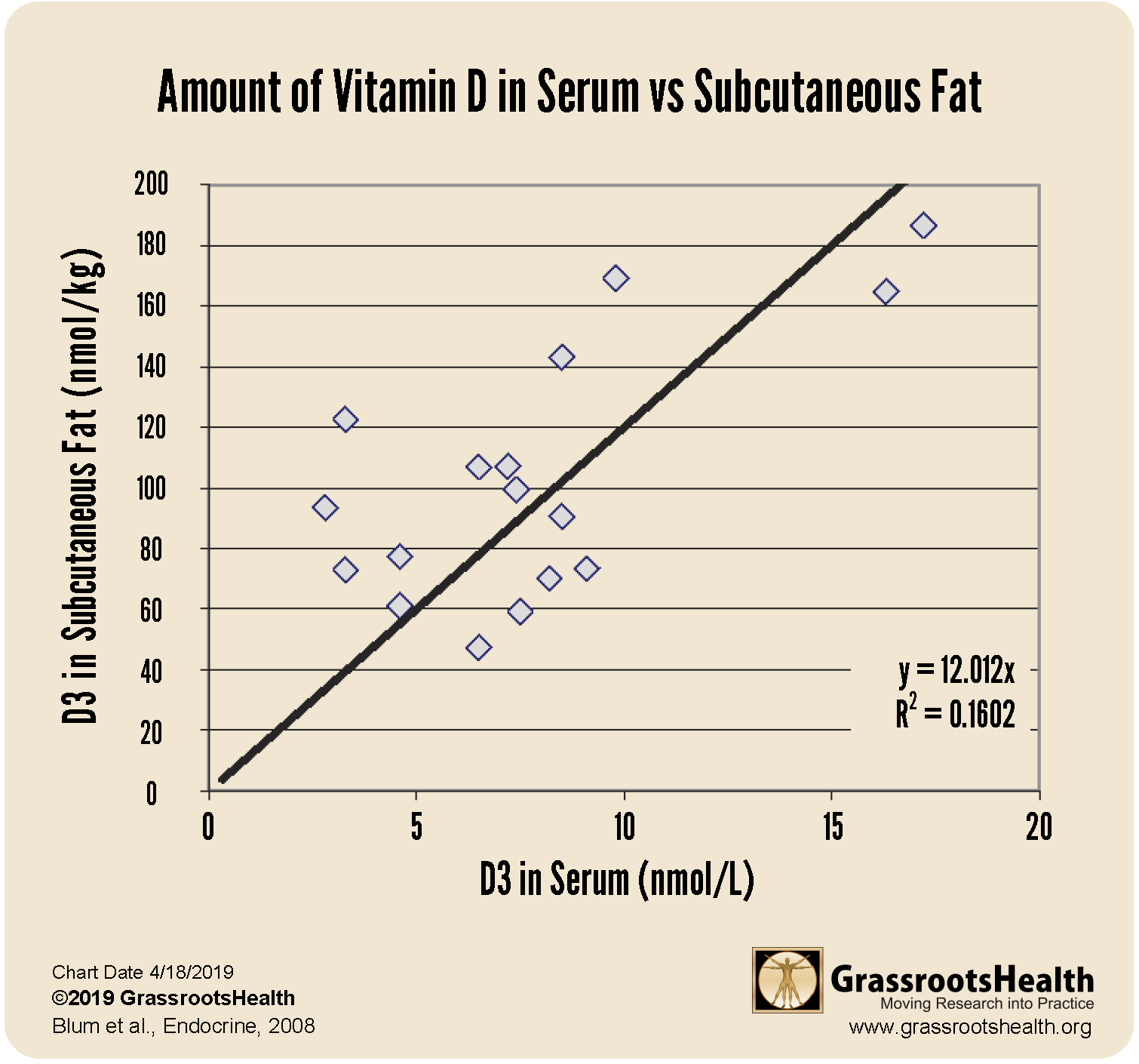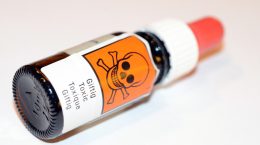Published on June 4, 2020
We hear it sometimes, in the media and from our doctors. “You don’t need to supplement with vitamin D because it is stored in your fat cells for use,” or “Be careful supplementing with vitamin D – it is fat soluble and can easily lead to toxicity if you take too much.”
A Common Misconception
 While it is true that vitamin D, as a fat soluble vitamin, has a higher affinity for fat cells in the body, it is not stored as a means of maintaining a steady serum level necessary for health, which experts agree should be in the range of 40-60 ng/ml (100-150 nmol/L). In fact, the more fat a person has on their body, the more likely they are to have vitamin D deficiency. Today, we will address this topic in hopes to clarify the relationship of vitamin D in fat versus blood.
While it is true that vitamin D, as a fat soluble vitamin, has a higher affinity for fat cells in the body, it is not stored as a means of maintaining a steady serum level necessary for health, which experts agree should be in the range of 40-60 ng/ml (100-150 nmol/L). In fact, the more fat a person has on their body, the more likely they are to have vitamin D deficiency. Today, we will address this topic in hopes to clarify the relationship of vitamin D in fat versus blood.
Vitamin D in Fat vs. Blood
The chart below, published by Blum et al., shows a plot of the relationship between the concentration of vitamin D in fat versus the concentration in blood. At any given vitamin D serum level, the level of vitamin D in fat remains at about 12 times that. As vitamin D levels rise and fall in the blood, so do vitamin D levels in fat. While this does indicate that vitamin D is “pulled” from fat as vitamin D serum levels decrease, it also shows that this transfer of vitamin D from fat into blood is not occurring to maintain the vitamin D serum level, but instead is maintaining the same ratio of vitamin D in blood to fat. At the same time, as the amount of fat on the body increases (such as with obesity), the amount of vitamin D needed to maintain a healthy blood level also increases.
Maintain a Steady Vitamin D Intake to Maintain Vitamin D Levels
The conclusion we offer in response to the common misconception of “I don’t need to supplement with vitamin D because it’s stored in fat” is that in fact, you do need to maintain a steady intake of vitamin D, whether from supplements, sun, or vitamin D-rich foods, if you want to maintain a target vitamin D blood level. Without this steady supply of vitamin D, levels in both blood and in fat stores will decrease.
Vitamin D Stores in Fat Can Lead to Toxicity?
Tomorrow, we will address the issue of toxicity. It is very difficult to become toxic from vitamin D – and the issue is not due to the fact that vitamin D is a fat soluble vitamin. Stay tuned to learn more!
Is it true?
Our goal with this “Vitamin D Myths” series is to provide information and resources to answer the question, “Why should I care about vitamin D?” and to help dispel the myths and misconceptions surrounding it that may be preventing you and others from accepting it as an essential component to health. We will also discuss other nutrients essential to the function of vitamin D (and vice versa) within the body that should not be ignored.
Vitamin D is necessary for multiple functions within the body and should not be ignored, but has the hype about vitamin D and its role in the body’s response to COVID-19 been over-exaggerated? What concerns about vitamin D are valid, and which are not? We want to provide you with evidence based information to help you decide what vitamin D action to take, if any, for your own health.
We want to hear from you!
Is there a particular ‘myth’ you have heard about vitamin D? Or, something you have read or been told that makes you question whether vitamin D ‘deserves’ so much attention? Or whether you should be taking it and how much? Share with us by emailing jen @grassrootshealth.org what you have heard that makes you question vitamin D so that we can consider addressing it in our newsletters.
Are You Getting Enough Vitamin D to Help Yourself?
Do you know what your vitamin D level is? Be sure to test today to find out, and take steps to keep it within a target of 40-60 ng/ml or 100-150 nmol/L! Give your immune system the nutrients it needs to support a healthy you and protect yourself from unnecessary diseases.
Through GrassrootsHealth Nutrient Research Institute, you can also test your essential elements magnesium, copper, zinc and selenium, toxins such as lead, mercury and cadmium, as well as your omega-3 levels, inflammation levels and thyroid stimulating hormone (TSH) level. Find out your levels today! Log on to the test selection page (click the link below) to get your tests and see for yourself if your levels can be improved.
Make sure you track your results before and after, about every 6 months!
How can I track my nutrient intake and levels over time?
To help you track your supplement use and nutrient levels, GrassrootsHealth has created the Personal Health Nutrient Decision System called
For each specific supplement, you can track what days you take it, how much, and many other details. This will help you know your true supplemental intake and what patterns of use work for you to reach and maintain optimum nutrient levels. Check it out today!








